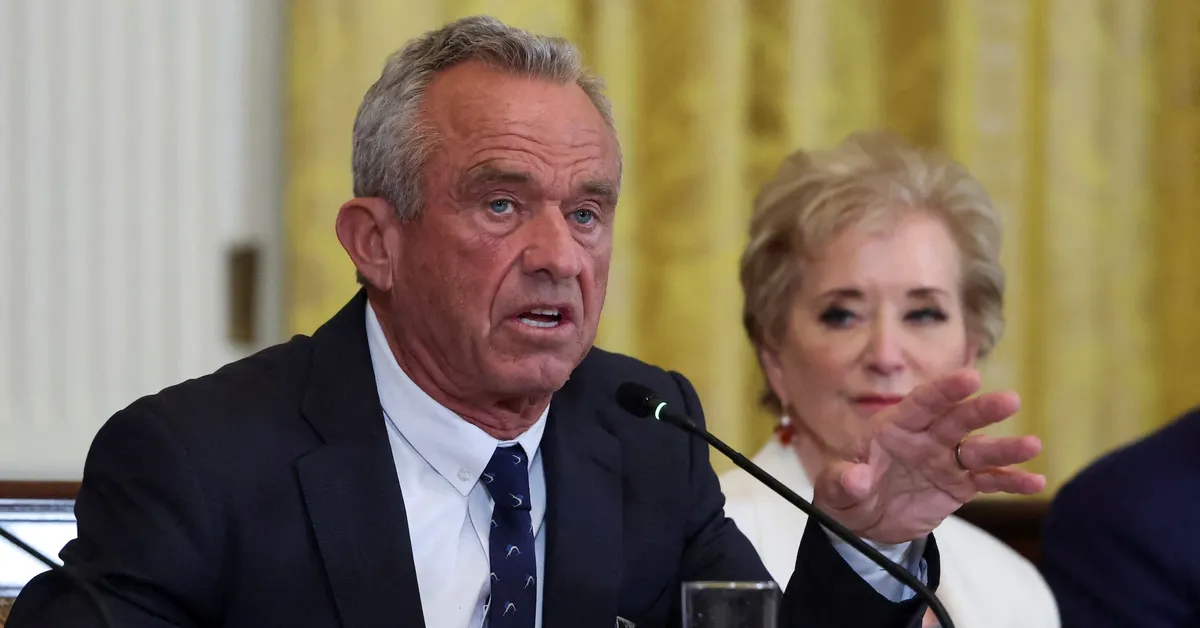
On May 29, a highly-publicized U.S. government report concerning the health of American children has come under scrutiny for referencing scientific studies that do not exist. The report, produced by the Make America Healthy Again Commission (MAHA), was released last week and has sparked significant debate regarding its credibility.
The MAHA commission, which includes notable figures such as Health Secretary Robert F. Kennedy Jr., Secretary of Agriculture Brooke Rollins, EPA Administrator Lee Zeldin, and FDA head Martin Makary, aims to address pressing health issues among children in the United States. The report claims that factors such as processed food, chemicals, stress, and the overprescription of medications and vaccines are contributing to the rising incidence of chronic illnesses among American youth.
Digital news outlet NOTUS reported on Thursday that the MAHA report contained citation errors, including seven studies listed in the footnotes that do not exist. Additionally, the report featured broken hyperlinks and misrepresented conclusions, raising concerns about the authenticity of the data used to support its claims. This has led to speculation about whether the report relied on artificial intelligence for its content.
Reuters has independently verified two of the erroneous citations, further casting doubt on the report's reliability. In response to the growing criticism, White House spokesperson Karoline Leavitt explained that any citation errors were the result of "formatting issues." The government later released a corrected version of the report but did not elaborate on the nature of the mistakes.
Despite the citation issues, the Department of Health and Human Services maintains that the substance of the MAHA report remains unchanged. They describe it as a historic and transformative assessment aimed at understanding the chronic disease epidemic affecting American children.
Critics have raised alarms about Robert F. Kennedy Jr.'s long-standing skepticism towards vaccines, which have historically been supported by a robust scientific consensus on their efficacy in preventing disease outbreaks. His recent actions, including the dismissal of thousands of federal health agency employees and the cutting of billions from U.S. biomedical research funding, have raised further questions about his leadership and the direction of health policies.
Marion Nestle, a professor emerita at New York University, expressed her concerns regarding the report's academic integrity, stating, “Nobody has ever accused RFK Jr. of academic rigor.” She noted that the speed at which the MAHA report was released implies it may not have undergone thorough vetting and clearance procedures.
Concerns about citation practices have also been voiced by Katherine Keyes, an epidemiology professor at Columbia University. She was incorrectly cited in the MAHA report for a study that she did not author. Keyes stated, “Citation practices are an important part of conducting and reporting rigorous science,” highlighting the significance of accurate referencing in academic work.
Additionally, Robert L. Findling, a psychiatry professor at Virginia Commonwealth University, clarified that he was not the author of another article cited in the report. By Thursday evening, the erroneous citations attributed to both Keyes and Findling had been removed from the MAHA report available on the White House website.
The controversy surrounding the MAHA report underscores the critical need for accuracy in government publications, particularly those that address public health. As discussions around the health of American children continue, it is essential for policymakers to rely on credible scientific research to inform their decisions.